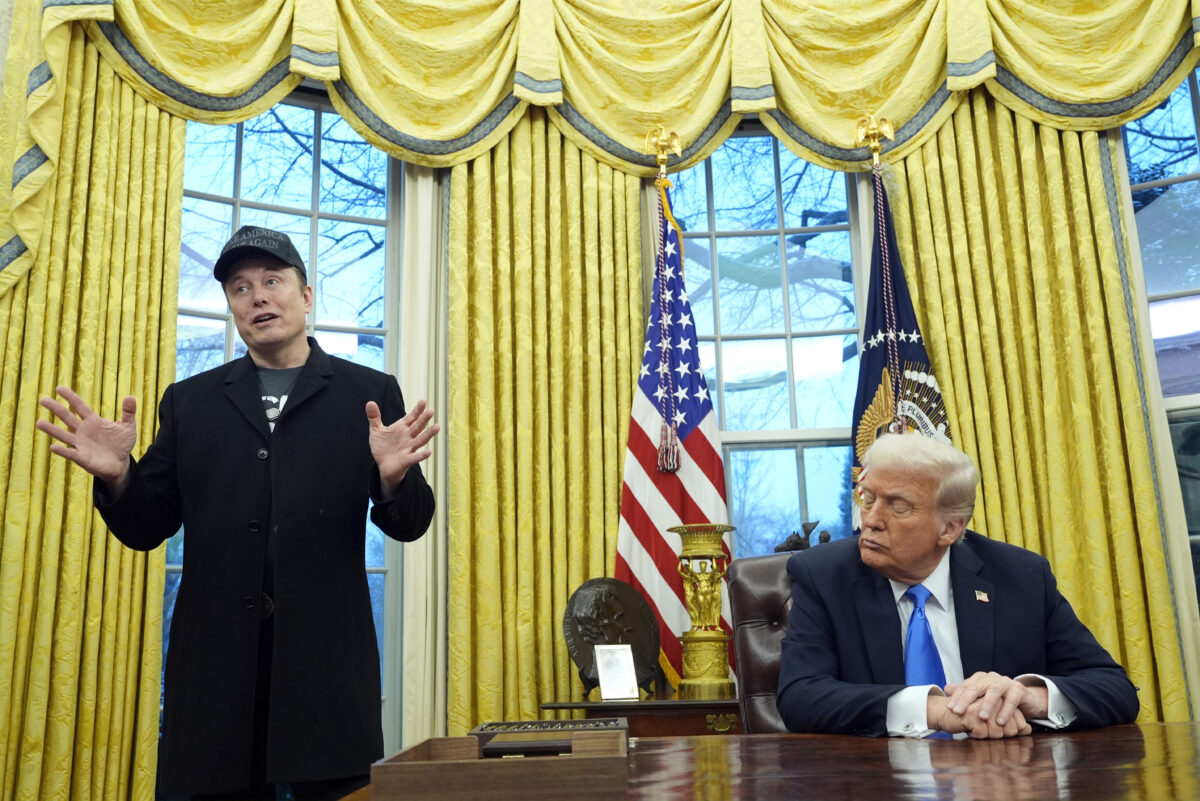Judge Strikes Down DOGE-Led Memo Directing Mass Firing of Federal Employees: ‘Illegal’ and Must Be ‘Rescinded’

AP Photo/Alex Brandon
A federal judge struck down a memo sent by the Office of Personnel Management directing other federal agencies to conduct mass firings, saying that the memo was “illegal” and should be “rescinded” because OPM did not have the power to control hiring and firing in other agencies.
The OPM memo was sent as part of President Donald Trump and Elon Musk’s efforts with DOGE to reshape the federal government. DOGE’s activities have been controversial, from an email demanding all federal workers justify their continued employment to the massive layoffs being pushed to Musk’s conflicts of interest.
Sent on Feb. 14, the OPM emailed directive followed up on a Jan. 20 memo and ordered the agencies to “separate probationary employees you have not identified as mission-critical.” A coalition of unions representing government employees and veterans filed a lawsuit a few days later.
Federal employees have “probationary status” for a period of time that is determined by each agency, and that status resets after promotions or if an employee transfers to a new agency. Probationary federal employees have a lower level of legal civil service protections than after they transition out of that status.
In a ruling from the bench Thursday, Judge William Alsup of the U.S. District Court for the Northern District of California said that the OPM memo was “illegal” and “should be stopped, rescinded” because that agency, which serves as a centralized human resources department for the federal government, only had the power to control hiring and firing within OPM — not other agencies.
“The Office of Personnel Management does not have any authority whatsoever under any statute in the history of the universe, to hire and fire employees within another agency,” said Alsup. “It can hire its own employees, yes. Can fire them. But it cannot order or direct some other agency to do so.”
“OPM has no authority to tell any agency in the United States government, other than itself, who they can hire and who they can fire, period,” the judge emphasized. “So on the merits, I think, we start with that important proposition.”
The plaintiffs’ victory was bittersweet, however, as Alsup, appointed to the bench by President Bill Clinton, stopped short of reinstating the employees who have already been fired, in part because the other agencies were not named as defendants. His ruling was limited to ordering OPM to “rescind any directives it has issued requiring the mass terminations” and “inform several agencies that it has no power to dictate firings across the federal bureaucracy,” wrote Politico senior legal affairs reporter Kyle Cheney.
One issue the judge brought up was how OPM had told the agencies to claim that these probationary employees were terminated for “performance” issues, even though that was not true, and the overall DOGE plan to fire the vast majority of probationary employees, whom he called “the lifeblood of our government” because “they come in at the low level and work their way up” to “renew” the government.
“That’s just not right in our country, is it, that we would run our agencies with lies like that and stain somebody’s record for the rest of their life?” the judge said. “Who’s going to want to work in a government that would do that?”
Alsup told the litigants that he will call acting OPM Director Charles Ezell to testify under oath at an upcoming hearing in March.
New: The Mediaite One-Sheet "Newsletter of Newsletters"
Your daily summary and analysis of what the many, many media newsletters are saying and reporting. Subscribe now!






Comments
↓ Scroll down for comments ↓